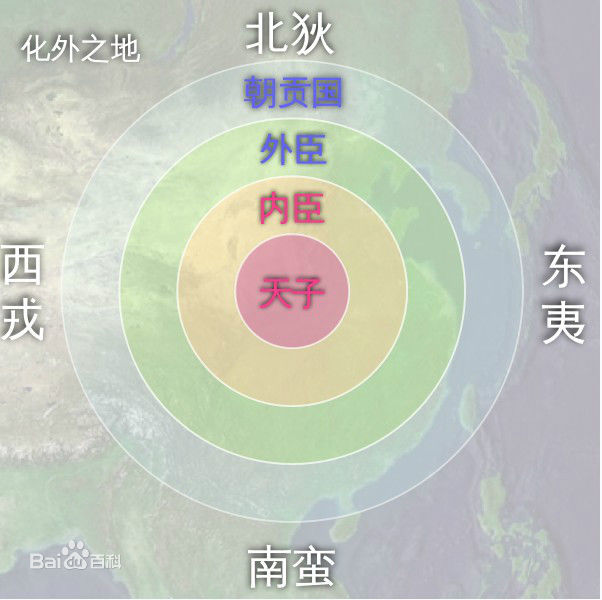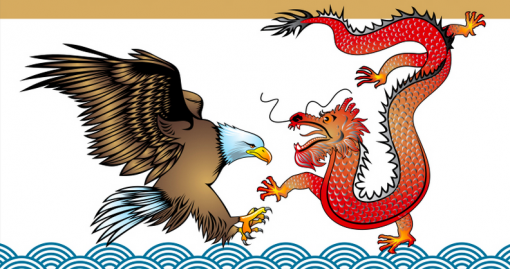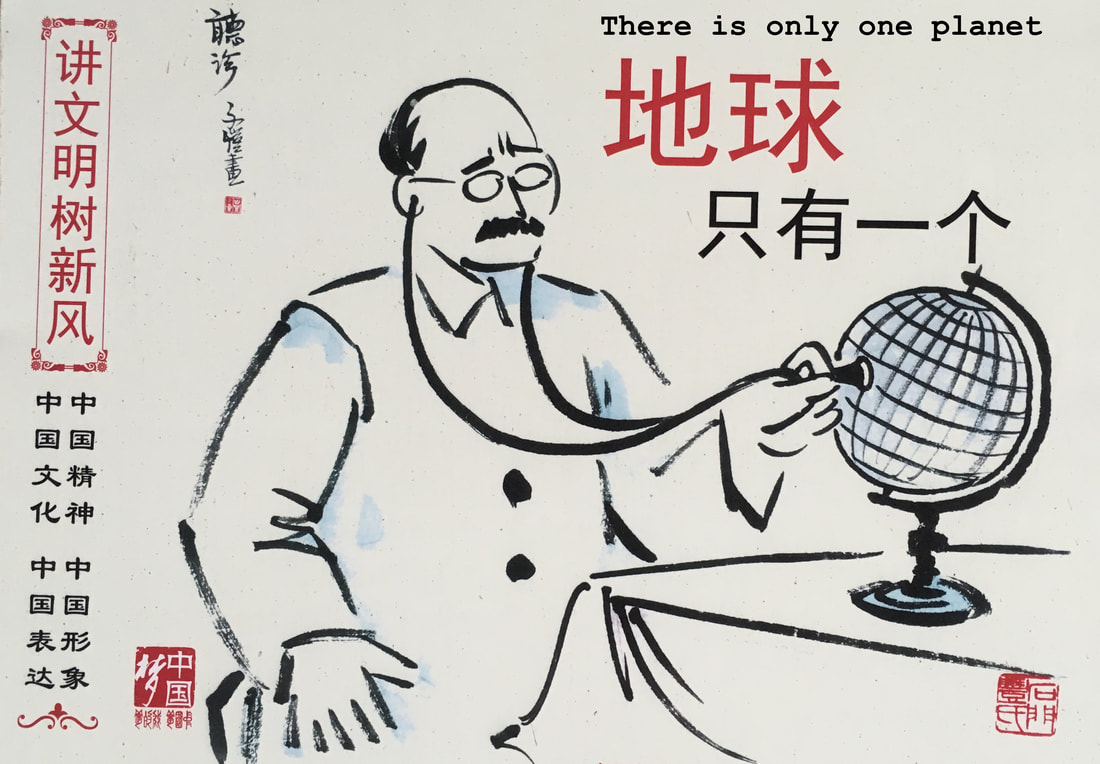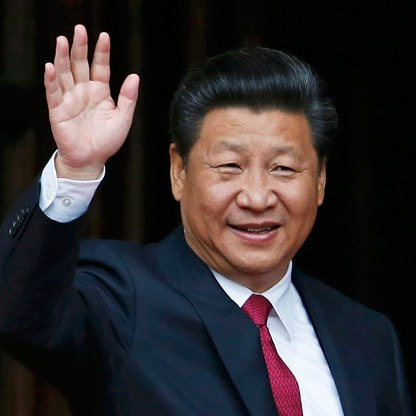Later dynasties, in particular the Ming who moved the capital in the early 15th century to Beijing and had there the Temple of Heaven | 天坛erected, continued to apply this essentially social and strongly hierarchical structure of the emperor and his court being the center of the known world, culturally superior to any other form of human life. Only if one tries to understand this more than two millennia long self-perception of the Chinese elite, one can phantom the emotional dimension of the what the British kicked off in 1839 with the Opium Wars and what is known by the Chinese as Century of Humiliation | 百年国耻.
I guess we can summarize a few answers to the questions raised earlier at this point:
1. Wait, but why do US and Chinese governments invest about 10% of their public expenditure on security measures?
The American elite is captivated in a prolongation of its obsolete 20th century world dominance, the related economic model of industrial growth and its profit focus which can only be sustained by creating a world of scarcity and poverty. The Chinese elite is enthralled in a 150-year long pursuit to regain cultural and political world hegemony and therefore spends insane amounts, in particular in terms of purchasing power, on domestic security and national defense, and has adopted the US economic system as means to meet that end.
2. Can China provide a better system of international governance than the US? Will there be any change in how we run this planet under a Pax Sinica, or will we just swap the color code from Yankee blue to Maoist red? Where is Xi Jinping’s weakness?
Xi Jinping has a clear inner and outer focus, which makes him contrary to Donald Trump a strong national leader, but he most likely lacks the required other focus to understand the global dimension of environmental and social challenges ahead, which demand a concerted effort of all of mankind and thus an integral, inclusive and pragmatic leadership. With a continuation of the same economic growth model he will only change the color code of the world hegemon, but won’t be able to give future generations hope. There is though a chance that Xi himself initiates in the tradition of Chinese pragmatism a transition from nationalist to globalist leadership; if only for pure power based calculations; and I give him my full endorsement following the thoughts of management philosopher Peter Drucker who once said:
One hears a great deal today about “the end of hierarchy.” This is blatant nonsense. In any institution there has to be a final authority, that is, a “boss” – someone who can make the final decisions and who can expect them to be obeyed. In a situation of common peril – and every institution is likely to encounter it sooner or later – survival depends on clear command. If the ship goes down, the captain does not call a meeting, the captain gives and order. And if the ship is to be saved, everyone must obey the order, must know exactly where to go and what to do, and do it without “participation” or argument. “Hierarchy” and the unquestioning acceptance of it by everyone in the organization, is the only hope in a crisis.
有地球才有家 | One World One Home
If Xi Jinping is our Captain Planet, then I would have a few recommendations for his second term during the next five years.
1. Convert all military forces into planeteers to clean up the debris already created and prevent future degradation of natural resources. Allocate national defense and homeland security spending to environmental protection. If Captain Xi takes the lead, I am pretty sure that quite a few nations will follow en suite.
2. Convert all nationalist propaganda which decorates Chinese streets, schools, cinemas and public spaces into globalist propaganda. Change slogans from Happy National Day – Wishing the Motherland a Future of Unlimited Bliss to Happy World Day – Wishing our Planet a Future of Unlimited Bliss.
3. Transform the China Dream | 中国梦into a World Dream 世界梦 and make clear to everybody that we have only one world, which is all our home.
4. Transition from an industrial growth system to an integral growth system, which creates abundance instead of scarcity.
5. Initiate a landslide transformation from an industrial education model to an integral education model, setting Chinese students free from the competitive drudgery of excessively acquiring cognitive skills and making space and time for the playful acquisition of collaborative social skills.




 RSS Feed
RSS Feed